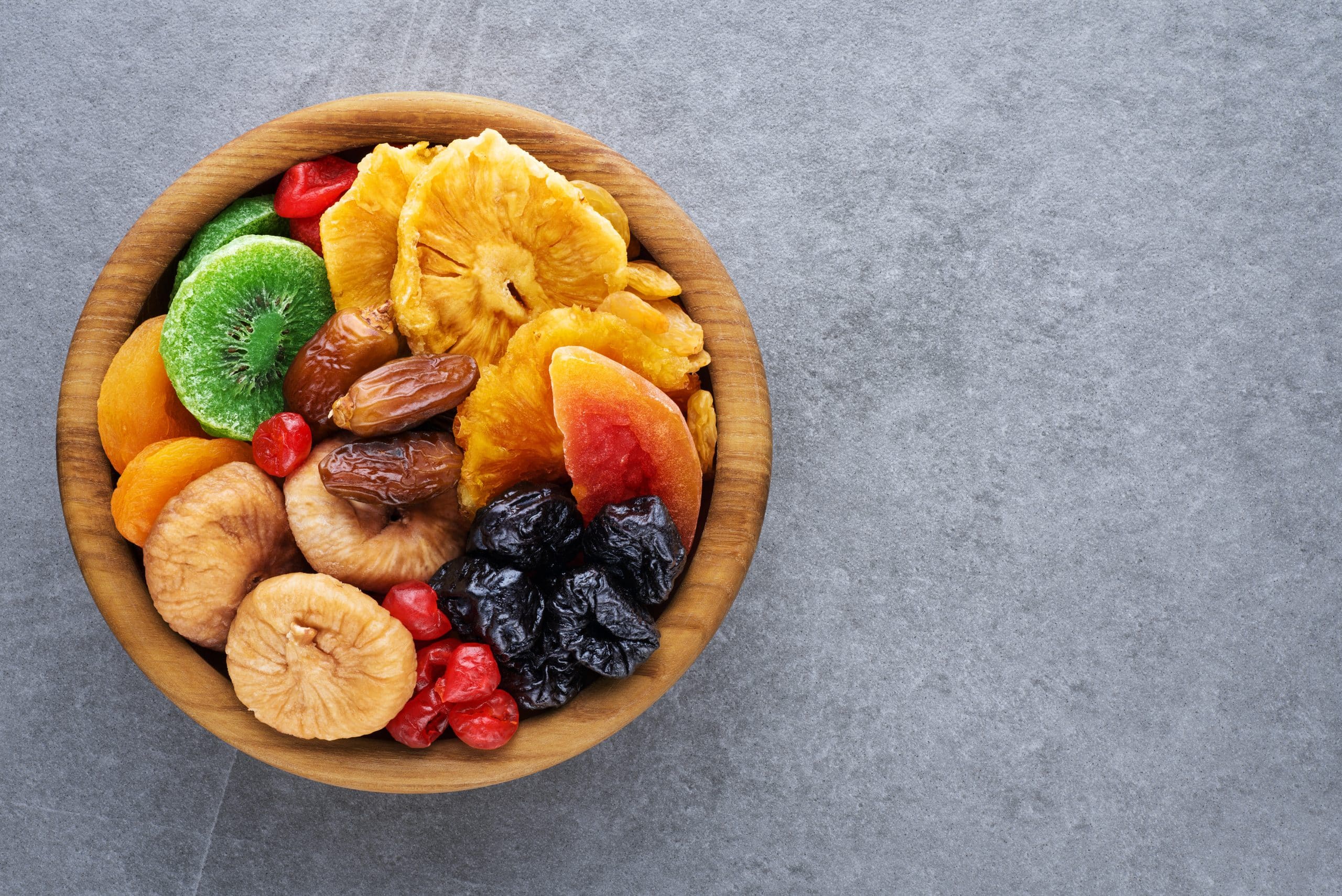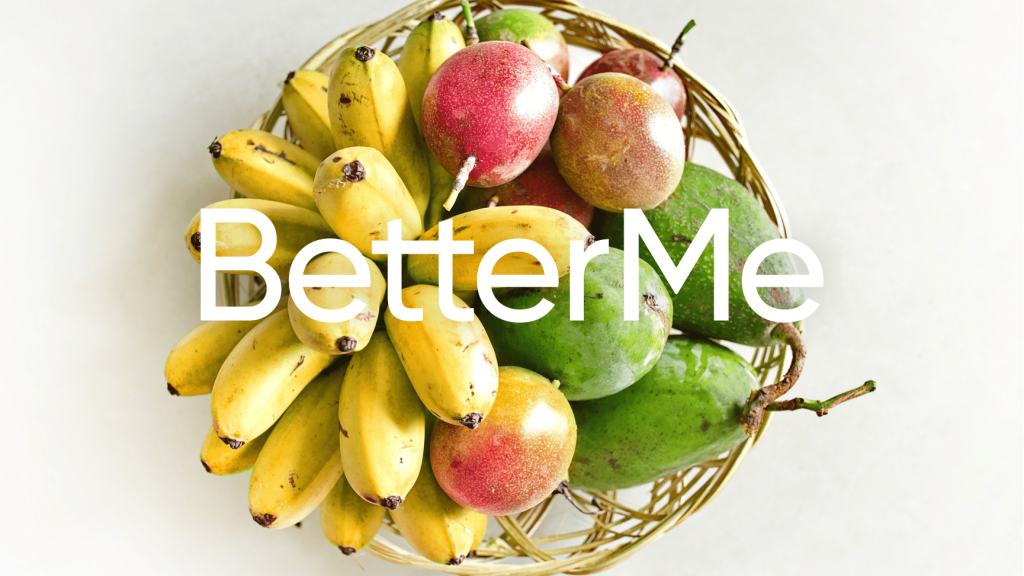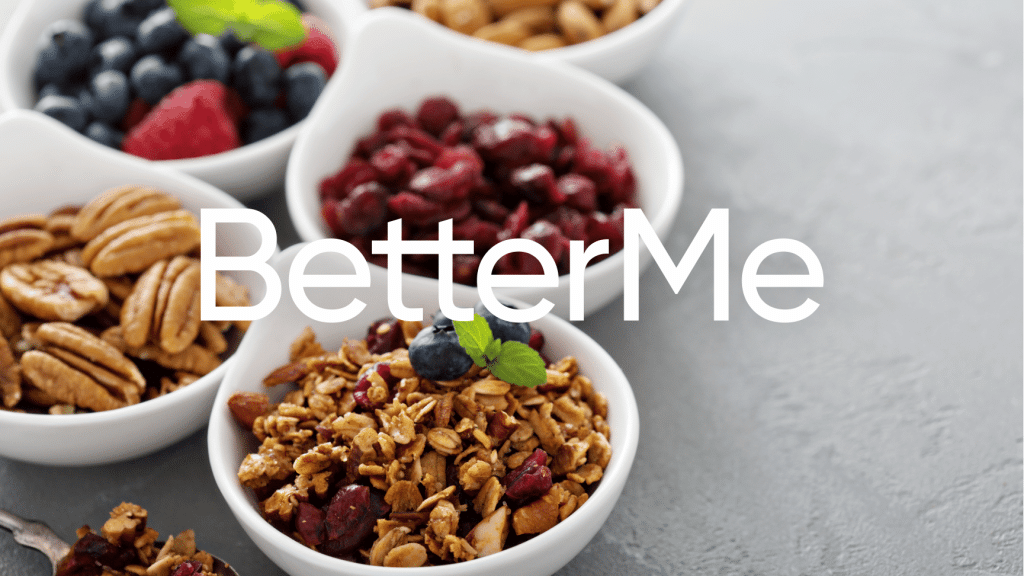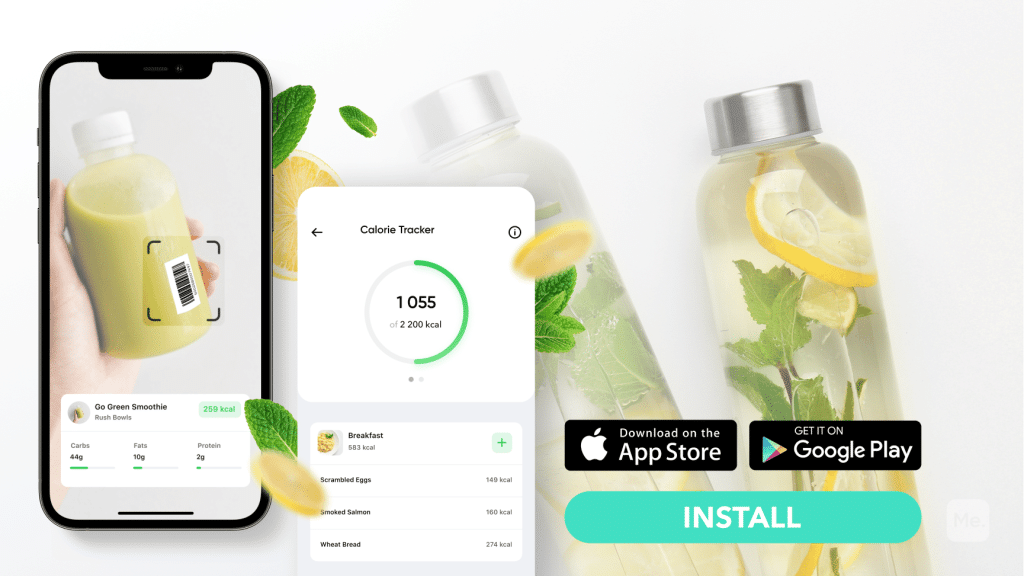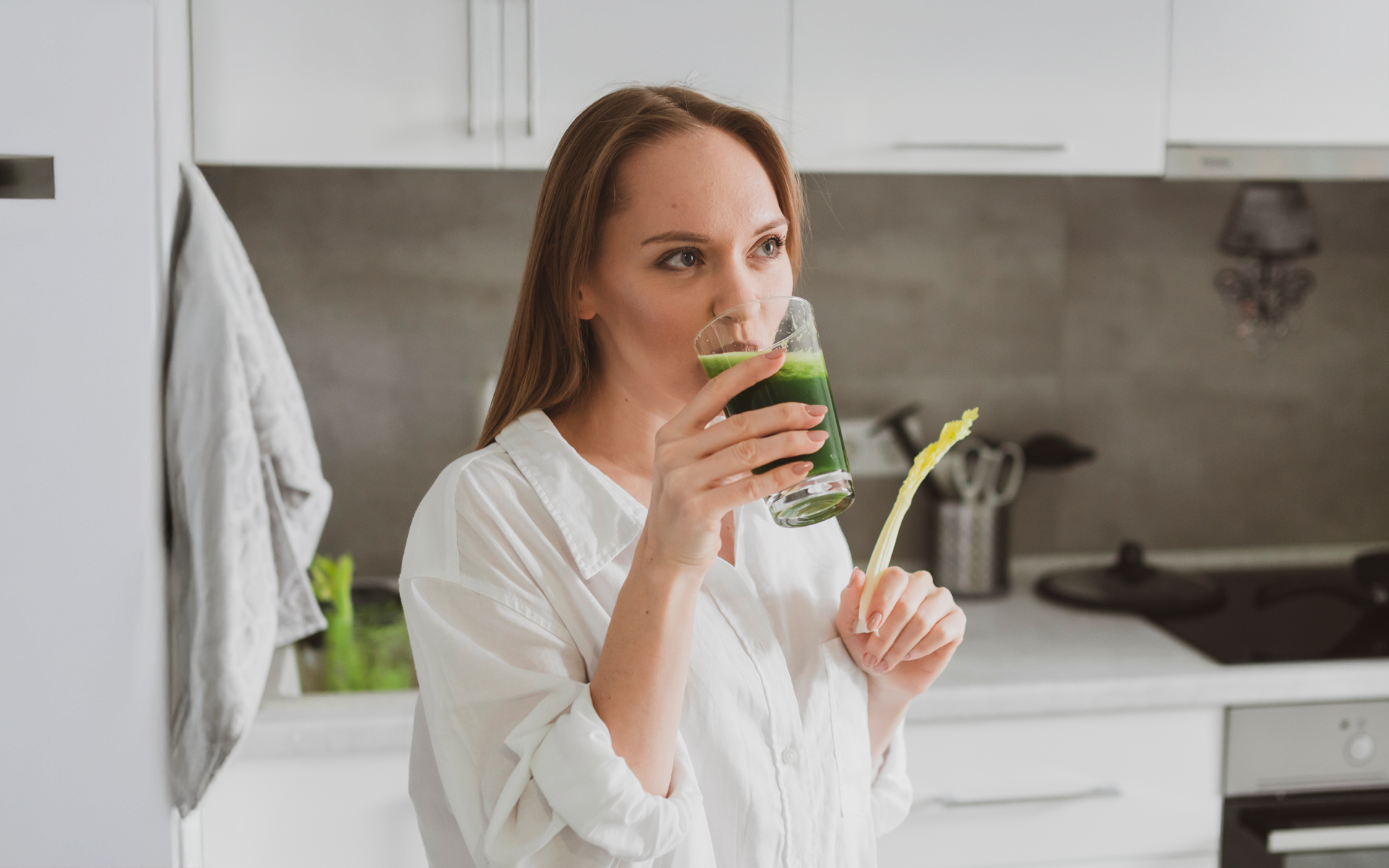Colorful, sweet, and usually shaped like your favorite cartoon character or animal – it’s no wonder why kids love fruit snacks. These gummy, chewy pieces may seem like the easiest way to get your family to eat more fruit, but are they really healthy? The answer is complicated. Fruit snacks typically contain some real fruit – either purees or juices – but many of them also contain added sugar and syrups, artificial flavors, and preservatives. The amount of vitamins and minerals found in most packaged fruit snacks is often negligible. That being said, there are some fruit snacks that do contain real fruit with fewer questionable ingredients – finding them is just a matter of reading labels and being mindful about what you’re buying. Read on to learn more about the healthiest fruit snacks, as well as alternative snack ideas.
Get your personalized
meal plan!
How Healthy Are Fruit Snacks?
Fruit snacks are a general term for a range of different types of products that typically are made with real fruit, dried and/or processed fruits, or artificial flavors. While their primary purpose is intended to be as a snack food, it can be difficult to determine how healthy they actually are.
The healthiness of any type of fruit snack depends largely on the ingredients used. Below, we list the different potential ingredients and their varying healthiness levels.
- Real fruit: If a snack contains real, whole pieces of fruit such as apples, bananas, or cherries then it has the potential to be a healthy snack (4).
- Fruit and vegetable purees: Purees are often a great source of vitamins and minerals, including potassium, calcium, and vitamin A (5). Beware of products that contain added sugars or preservatives.
- Natural, dried fruits: Natural, dried fruits are a great choice as they often contain no added sugar or salt and plenty of natural fibers, vitamins and minerals (1). This can make them a healthy snack when eaten in moderation.
However, the drying process does remove some of the nutritional content of fresh fruits. It also means that these snacks may contain high amounts of natural sugars, which is unhealthy if consumed in large quantities.
- Processed fruits: Processed fruits are fruit products that have been treated to preserve their flavor and texture for a longer shelf life (2). These are generally considered less healthy than fresh or dried fruits due to the added sugar content, although they are usually still higher in fiber and vitamins than other snack options.
- Artificially flavored fruit snacks: These are usually made from a combination of various artificial sweeteners and preservatives, as well as dried fruits. Artificial flavors may make the snacks taste better, but they also contain a lot of unhealthy additives and preservatives (3). These snacks are typically not very nutritious and should be avoided if possible.
Read More: 12 Healthy Crunchy Snacks Recipes That Are Savory, Sweet, And Satisfying
The Problem With Fruit Snacks
Fruit snacks can be a convenient way to get your family to eat more fruit, but they do have some drawbacks:
-
Empty Calories
Many fruit snacks contain added sugars and artificial flavors, which means they are high in calories with little to no nutritional value. Eating too many of these snacks can lead to weight gain. That’s not all–research has shown that added sugars increase the risk of developing type 2 diabetes, heart disease, and other chronic health problems (7).
-
Added Sugars
Fruit snacks often contain large amounts of added sugars, which can cause blood sugar levels to spike quickly and lead to a crash in energy later on. Temporary energy boosts aside, these added sugars are not beneficial to your health. Research has shown that consuming large amounts of added sugars can lead to an increased risk of obesity, type 2 diabetes, heart disease, and other chronic health issues (6).
-
Artificial Flavors
Some fruit snacks contain artificial dyes and colors, which can be harmful to your health. These additives can also contribute to food sensitivities or allergies in some people (3). In addition, many of these artificial flavors are not easily absorbed by the body, which can lead to digestive issues.
Food dyes such as Red 40, Yellow 5, and Blue 1 have been linked to behavioral issues in children. Research has also shown that these artificial flavors may have adverse effects on neurological development, such as impairing memory and learning.
-
Nutrient Deficiencies
Fruit snacks do not provide the same nutrients as real fruits and vegetables. While they may contain some vitamins and minerals, they do not contain the essential fiber and antioxidants that come from eating whole fruits and vegetables. Eating too many of these snacks can lead to nutrient deficiencies and other health problems over time.
-
Addictive
Eating too many fruit snacks can become addictive, as they contain added sugars and artificial flavors that can cause cravings. Eating these snacks in moderation is important to avoid later uncontrolled eating.
Lean and toned up body isn’t just a far-fetched fantasy. Check out the BetterMe app and watch it propel your weight loss journey into high gear!
Reading Labels To Choose Healthier Fruit Snacks
To make better decisions when choosing fruit snacks, it’s important to read the ingredient labels. Here are some tips to help you choose the healthiest snacks when shopping:
- Look for fruit snacks with “whole” ingredients. Try to find snacks that are made from real, whole fruits such as apples, pears, bananas, and berries.
- Look for snacks that don’t contain added sugars or sweeteners, like corn syrup, high fructose corn syrup, cane sugar, dextrose, maltose, sucrose, and fructose.
- Avoid snacks that contain preservatives and artificial colors or flavors, especially if the label lists them as the first few ingredients.
- Choose snacks that are low in sodium and saturated fat.
- Check the serving size on the label and be sure to stick to the recommended amount.
- Compare the calorie count and nutritional values of different brands of snacks to identify the healthiest option.
- Look for additional health benefits in your snacks, such as those that are high in antioxidants or contain additional vitamins and minerals.
What To Do If You Must Have Fruit Snacks
If you must eat fruit snacks, there are still ways to limit the negative effects of these snacks while providing your family with a healthier alternative.
- Make sure that you’re eating them in moderation. Eating too many of these snacks can add up quickly, leading to weight gain and other health issues. Think of fruit snacks as an occasional treat.
- Try to choose the healthiest options available by reading the labels and comparing different brands of snacks. Steer clear of snacks that contain added sugars, artificial flavors, and preservatives.
- Make your own fruit snacks at home using fresh fruits and natural sweeteners such as honey or agave syrup. This is a great way to reduce the amount of added sugars and chemicals found in store-bought snacks.
- Finally, be sure to incorporate plenty of fresh fruits and vegetables into your family’s diet to ensure that everyone is getting the nutrients they need. Eating real, whole fruits and vegetables is the best way to get the vitamins, minerals, antioxidants, and fiber your body needs.
Read More: 7 Surprisingly Simple Yet Satisfying Vegan Gluten-Free Snacks For On-The-Go Convenience
What Are Some Healthy Alternatives To Fruit Snacks?
If you’re looking for a healthier alternative to fruit snacks, there are plenty of options to choose from. Here are some of the best:
- Fresh Fruit: There’s nothing quite like a fresh, ripe piece of fruit. Many snacks that claim to be “healthy” still contain added sugars or preservatives – so if you want something truly nutritious, go for a piece of fresh fruit.
- Nuts And Seeds: Nuts and seeds are good sources of healthy fats, proteins, and minerals that can help keep you full for longer. Try making your own trail mix with a combination of nuts, seeds, and dried fruit for a tasty and nutritious snack.
- Veggies: Cut up some carrots, celery, or cucumbers and dip them in hummus or guacamole for a crunchy, nutritious snack.
- Yogurt: Plain Greek yogurt provides protein and probiotics that can help keep your gut healthy. Add some fresh fruit and a few nuts for added crunch and flavor.
- Popcorn: Air-popped popcorn is a whole grain, which means it contains some fiber and protein. Just make sure to avoid varieties with added butter or cheese – these can add lots of unhealthy fat and calories.
- Protein Bars: Look for protein bars that are made with natural ingredients and contain minimal amounts of added sugar. Home-made protein bars also make a great snack option if you have the time to prepare them.
Looking for a way to break the vicious cycle of weight loss and tone up all the jiggly parts? Watch the extra pounds fly off and your muscles firm up with the BetterMe app!
The Bottom Line
Ultimately, when it comes to snacking, the healthiest choices are those made with real, whole foods. The right snack can help to provide you with energy and essential nutrients without overloading you on unhealthy additives and sugars. As long as you make sure to choose snacks that are high in nutrition and low in calories, you can enjoy them guilt-free.
DISCLAIMER:
This article is intended for general informational purposes only and does not serve to address individual circumstances. It is not a substitute for professional advice or help and should not be relied on for making any kind of decision-making. Any action taken as a direct or indirect result of the information in this article is entirely at your own risk and is your sole responsibility.
BetterMe, its content staff, and its medical advisors accept no responsibility for inaccuracies, errors, misstatements, inconsistencies, or omissions and specifically disclaim any liability, loss or risk, personal, professional or otherwise, which may be incurred as a consequence, directly or indirectly, of the use and/or application of any content.
You should always seek the advice of your physician or other qualified health provider with any questions you may have regarding a medical condition or your specific situation. Never disregard professional medical advice or delay seeking it because of BetterMe content. If you suspect or think you may have a medical emergency, call your doctor.
SOURCES:
- Dried fruit consumption and cardiometabolic health: a randomized crossover trial (2020, nih.gov)
- Food processing and nutrition (2022, betterhealth.vic.gov.au)
- Hypersensitivity Reactions to Food Additives—Preservatives, Antioxidants, Flavor Enhancers (2022, nih.gov)
- Impact of Whole, Fresh Fruit Consumption on Energy Intake and Adiposity: A Systematic Review (2019, nih.gov)
- Micronutrient Profile and Carbohydrate Microstructure of Commercially Prepared and Home Prepared Infant Fruit and Vegetable Purees
- Relationship between Added Sugars Consumption and Chronic Disease Risk Factors: Current Understanding (2016, nih.gov)
- Sweet Stuff (2014, nih.gov)
